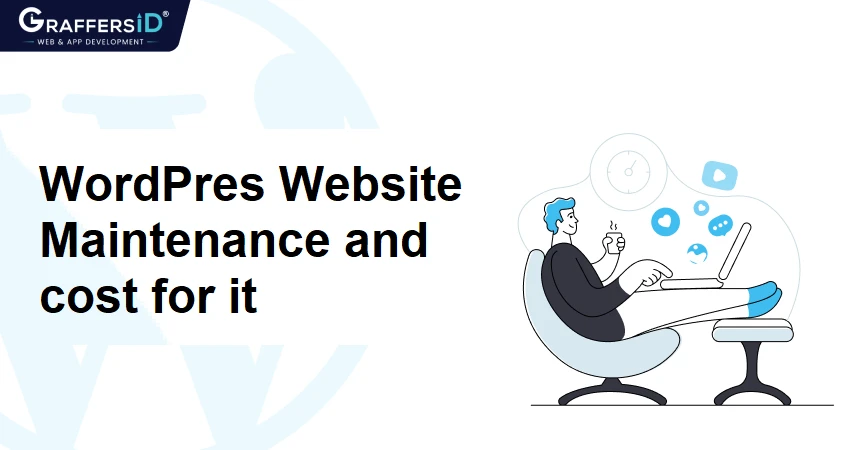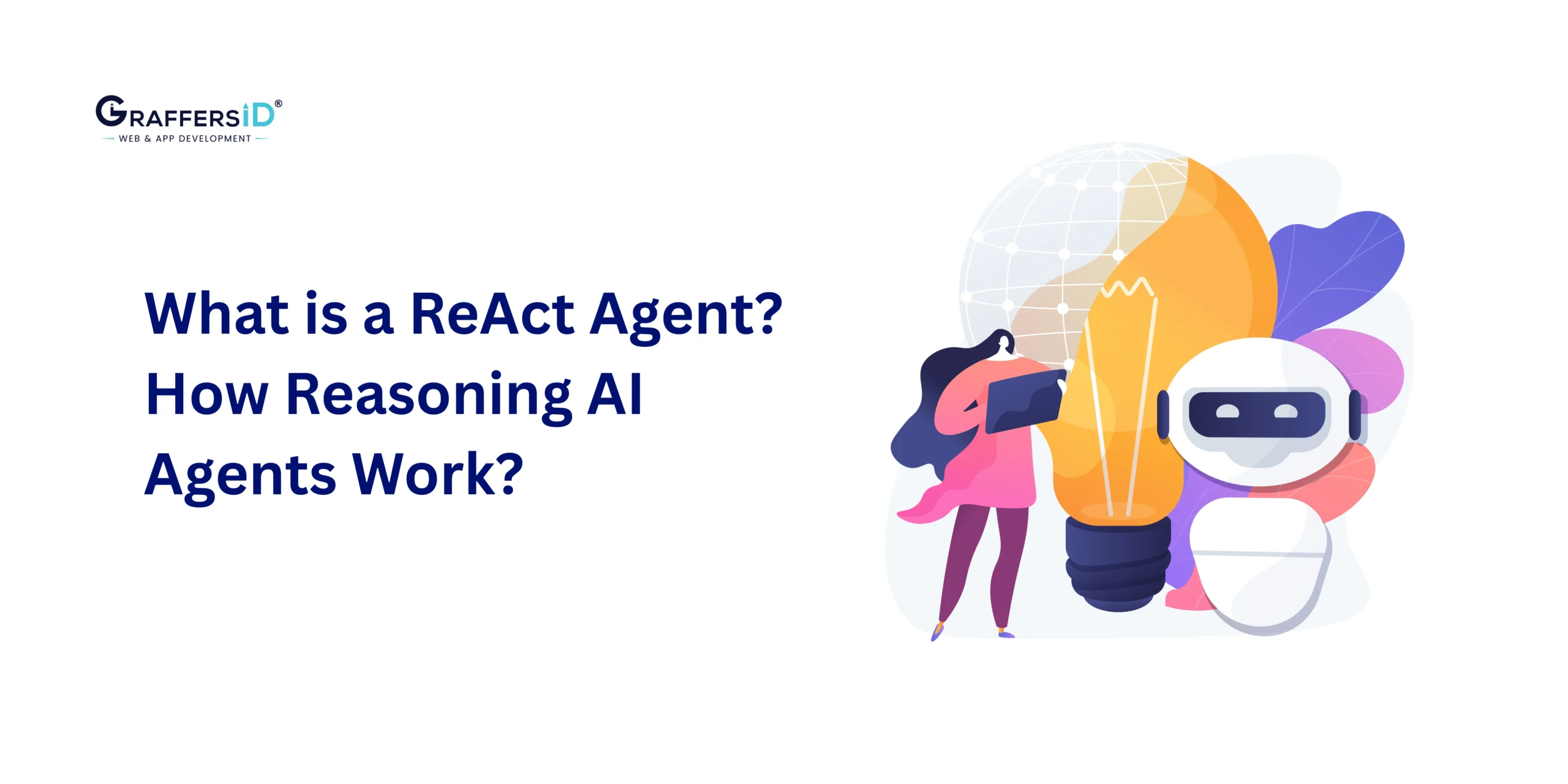So you have a built website using WordPress, but you don’t know about WordPress maintenance and cost for the same. Then, don’t worry we are here to resolve your queries. Do check this blog to get details about website maintenance, factors after WordPress website maintenance cost, and steps to reduce the cost.
Creating websites either by hiring expert developers on your own or with the use of various tools requires proper maintenance. Well-maintained websites ascertain safety, security, and smooth working.
We researched the most popular platform for website development. Came across a report, according to it 38% of the responsive and user-friendly websites are created on WordPress, the highly demanding website building platform. And, to make these WordPress websites successful, they need to be kept upkeep always.
Web developers put all their efforts into ensuring that websites do not experience any downtime due to maintenance issues. However, there are various factors on which the WordPress maintenance cost depends. Knowing these costs will help you in saving your spending and enhance your website’s performance.
Here, at GraffersID, a leading IT staff augmentation company, we have skilled developers who work effortlessly to provide productive services at an affordable rate with timely delivery. Besides, we provide dedicated remote developers to assist you with quick, easy, and friendly maintenance services.
Now, before acknowledging the cost of WordPress maintenance, we will find out what WordPress maintenance is and why is it needed.
What is WordPress Website Maintenance?
WordPress maintenance is a service offered by website development companies to make your website work regularly without any technical concerns.
Overall website maintenance sidesteps the issues related to, heavy work, ranking, broken links, inconvenient themes, or outdated information.
Thus, WordPress website service is essential for keeping your website healthy and secure.
Want to know the cost of hiring a WordPress Developer?
Need for WordPress Website Maintenance
Maintaining a WordPress website regularly is mandatory to avoid unpredictable expenses and to lessen your high budget possibly caused due to ignorance towards website maintenance services.
Expenses that can be easily saved through WordPress maintenance services-
- Break down costs by regularly updating and maintaining your website.
- Data recovery costs by securing information.
- Avoiding possible vulnerabilities while code injections can save Security costs.
- Maintenance aids in speed optimization which can prevent your revenue loss.
The Importance of WordPress Website Maintenance
Your WordPress website is more than just an online presence; it’s a digital storefront, a brand ambassador, and a platform to engage with your audience. Regular maintenance is vital to keep it functional, secure, and aligned with your business goals. Neglecting maintenance can lead to sluggish performance, security vulnerabilities, and a poor user experience.
What do WordPress Maintenance charges include?
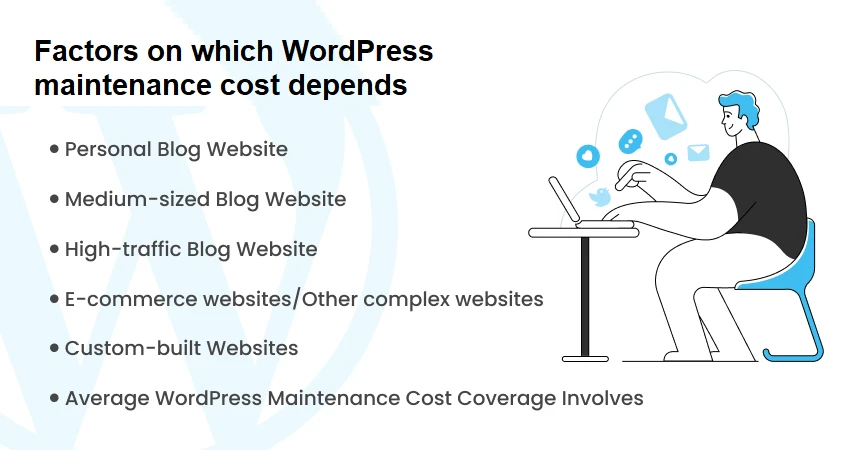
The charges for maintaining WordPress sites depend on different factors-
1. Type of Website:
Whether you manage complex websites or maintain multiple sites for the client, the cost for each varies. The average costs for maintaining WordPress websites majorly depend on the size of the website.
Listed below are the average costs based on the type of WordPress website-
-
Personal Blog Website
Retaining a small personal blog website does not require additional plugins thus, the cost is estimated for domain and hosting. The monthly expense for maintenance of a personal website is around $200-$220. Also, there is no need for website designs as enough free themes are available.
-
Medium-sized Blog Website
Medium blog site comprises nearly a hundred to a thousand visitors. This requires additional charges as the size increases, and the maintenance requirements expand. Thus, the cost for maintaining a medium-size site is $250-$350. The costs indicate the safeguarding site from spam and upgrading security for the same by adding specific plugins.
Other expenses are possibly saved in a way that content is created by the owner, technical assistance is performed by freelancers, and marketing is done through social media. So, all in all, domain and hosting expenses are mainly demanded.
-
High-traffic Blog Website
High-traffic blog website costs include $350-$500 monthly charges as it calls for thousands and above visitors. The expenses comprise additional plugin fees, regular content planning, advertising, and marketing tools to engage the visitors.
-
E-commerce websites/Other complex websites
If you are creating a website for an e-commerce store or making multilingual websites or a multisite network then the maintenance costs raise around $500-$800 monthly. The pricing includes speed optimization, and hosting plans. Plugins and premium themes.
-
Custom-built Websites
Custom-built websites are created and maintained by professionals since your site doesn’t use platforms like WordPress. This expects the monthly expenses up to $1000 depending on the size of the site and the customization level.
2. Average WordPress Maintenance Cost Coverage Involves:
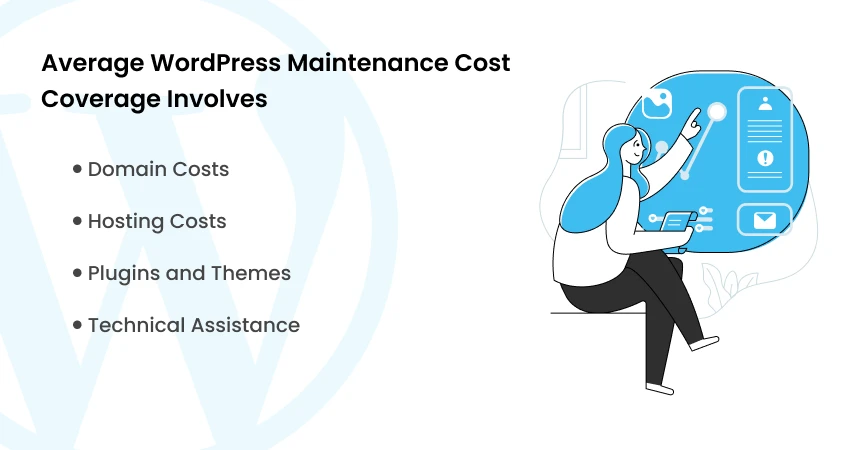
Based on the type of website, the cost of maintenance changes as per the requirements. But, most of the websites include a few common costs.
Discussing the maintenance cost breakdown below will give you a clear idea of the average monthly WordPress maintenance package.
1. Domain Costs
Depending on the plan you choose, the domain cost varies. If you go with the annual plan then you need to renew the domain registration in one or two years. The domain charges rely on the domain extension (.org, .store) or domain registrar (GoDaddy).
The average domain cost ranges between $10-$20 annually. Also, the price can reach thousands of dollars, if you are picking any pre-owned domain. For that purpose, you can connect with the owner and bid for that domain.
Here are 8 Ways to Make your WordPress Website stand out from the competition
2. Hosting Costs
Hosting charges depend on the type of sites and business needs. A small blog website will cost the least hosting cost while the medium to large blog sites will cost you up to $100 per month. Also, most of eCommerce websites demand all-inclusive hosting services like SSL licenses for securing data and your website’s identity. Thus, the cost of an eCommerce website’s hosting services rises to $500 per month.
3. Plugins and Themes
Though WordPress offers free plugins and themes for licensing the paid ones, the cost ranges between $10-$100 per month. Following the changes in themes and plugins, you need to hire WordPress developers to maintain the websites accordingly.
4. Technical Assistance
For bug-free and speedy websites, you need technical assistance. It is crucial to maintain the infrastructure of your website and to make sure that all elements are working properly.
WordPress Maintenance Services Pricing
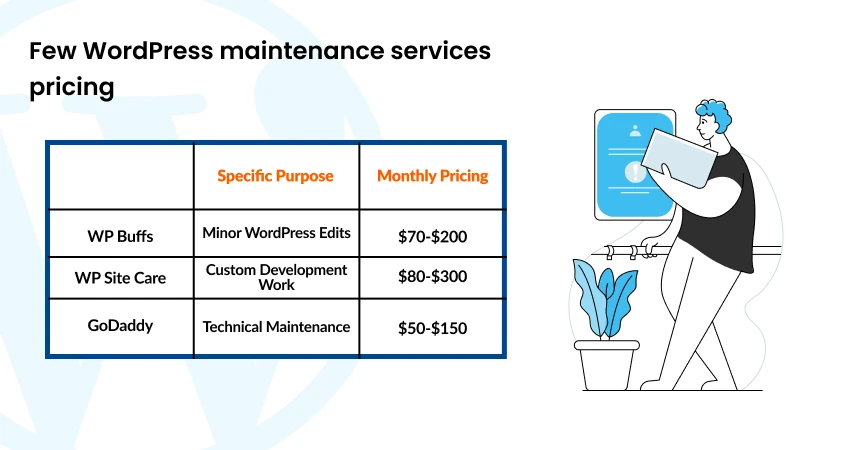
Various WordPress maintenance services offer the overall maintenance of your website regularly. These services manage basic tasks and a lot more for your business.
These WordPress maintenance services are significant for specific purposes and have a pricing structure as given in the table below-
Why outsource WordPress Maintenance professionals?
Investing abroad for WordPress maintenance services can help save your expenses for recovering your website. Outsourcing experts or professional teams from India is affordable and reliable.
Moreover, it will help eliminate the training costs as you will be facilitated with highly-skilled employees working for your WordPress website.
Factors Affecting WordPress Website Maintenance Costs
The cost of maintaining a WordPress website can vary widely based on several factors. These include the complexity of your website, the size of your business, the range of features and functionalities, the frequency of updates, and whether you opt for in-house maintenance or professional services.
Understanding Different Levels of Maintenance Plans
WordPress website maintenance plans often come in different tiers, each offering varying levels of services. These can include basic updates, security checks, performance optimization, content updates, plugin management, and more. Choosing the right plan for your business depends on your website’s needs and your budget.
Essential Tasks in WordPress Website Maintenance
- Regular Content Updates: Keeping your website’s content fresh and relevant is crucial for engaging visitors and improving SEO.
- Plugin and Theme Updates: Outdated plugins and themes can lead to security vulnerabilities. Regular updates are essential.
- Broken Link Checks: Broken links can harm user experience and SEO. Regularly scan and fix them.
- Database Optimization: Regularly clean and optimize your database for better performance.
- Mobile Responsiveness: Ensure your website looks and functions well on all devices.
- User Testing: Regularly test forms, buttons, and other features to guarantee a seamless user experience.
Optimizing Performance for Better User Experience
A slow website can drive visitors away. Some strategies to enhance performance include:
- Caching: Implement browser and server-side caching to reduce load times.
- Image Optimization: Compress images to maintain quality while reducing file sizes.
- Minimize Plugins: Too many plugins can slow down your site. Keep only essential ones.
- Content Delivery Network (CDN): Use a CDN to distribute content across multiple servers for faster loading.
Ensuring Website Security and Updates
Security is paramount for any website. Implement the following practices:
- Regular Updates: Keep WordPress, themes, and plugins updated to patch security vulnerabilities.
- SSL Certificate: Secure your site with an SSL certificate, boosting trust and SEO.
- Firewall and Security Plugins: Install security plugins to prevent hacking attempts and malicious activities.
- Strong Passwords: Enforce strong passwords for all user accounts to minimize unauthorized access.
Regular Backup Strategies
Backup solutions are a safety net against data loss. Consider:
- Automated Backups: Schedule regular automated backups of your website’s data and files.
- Off-site Storage: Store backups off-site (external server or cloud) for added security.
- Testing Backups: Periodically restore backups to ensure they’re functional.
Cost-Effective Plugins and Tools
- Yoast SEO: An all-in-one SEO tool for optimizing your website’s content.
- UpdraftPlus: Simplifies backups and restoration with automated schedules.
- W3 Total Cache: Enhances website performance through caching and optimization.
- Sucuri Security: Provides robust security features to protect against threats.
- Akismet Anti-Spam: Prevents spam comments and safeguards your site’s integrity.
The Role of Professional Support
Sometimes, DIY maintenance isn’t enough. Professional support can provide:
- Expertise: Benefit from the knowledge of experienced professionals.
- Time-Saving: Free up your time to focus on your core business activities.
- Emergency Assistance: Get quick help in case of technical issues or security breaches.
Alternatives to Ongoing WordPress Website Maintenance
Thankfully, there are alternative methods and tools available that can streamline the process and alleviate the burden of ongoing maintenance. In this article, we’ll delve into these alternatives, offering you a comprehensive guide to optimize your WordPress website management strategy.
- Automated Backup Solutions: One of the essential aspects of website maintenance is ensuring regular backups to safeguard against data loss. While manual backups are feasible, they can be prone to oversight and require consistent effort. Automated backup solutions, such as UpdraftPlus or BackupBuddy, offer a convenient alternative. These plugins automate the backup process, allowing you to schedule regular backups and store them securely either locally or in the cloud. By implementing automated backup solutions, you can mitigate the risk of data loss and streamline your maintenance workflow.
- Managed WordPress Hosting: Traditional web hosting often requires users to handle various maintenance tasks, such as software updates, security patches, and performance optimization. Managed WordPress hosting services, such as WP Engine or SiteGround, offer an alternative approach by taking care of these tasks for you. With managed hosting, the provider handles server maintenance, updates, and security measures, allowing you to focus on creating and managing content without worrying about the technical aspects. While managed hosting may come at a higher cost, the time and effort saved can justify the investment for many website owners.
- Content Delivery Networks (CDNs): Website performance plays a significant role in user experience and search engine rankings. Content Delivery Networks (CDNs) offer an alternative approach to optimize website speed and reliability. CDNs distribute your website’s static content across multiple servers worldwide, reducing latency and improving loading times for visitors across different geographic locations. Popular CDN services like Cloudflare or StackPath integrate seamlessly with WordPress, offering easy setup and configuration. By leveraging a CDN, you can enhance your website’s performance and reduce the need for manual optimization efforts.
- WordPress Maintenance Services: For website owners who prefer to outsource maintenance tasks entirely, WordPress maintenance services provide a viable alternative. These services typically offer a comprehensive range of maintenance activities, including updates, backups, security monitoring, and performance optimization. Companies like WP Buffs or Maintain offer subscription-based plans tailored to the specific needs of WordPress users. By entrusting maintenance tasks to professionals, you can ensure that your website remains secure, up-to-date, and optimized for performance, allowing you to focus on growing your online presence.
- Headless WordPress: Headless WordPress represents a paradigm shift in website development and maintenance. Unlike traditional WordPress setups, where content management and presentation are tightly coupled, headless WordPress decouples the backend (content management) from the front end (user interface). By using headless architecture, you can leverage WordPress as a robust content management system (CMS) while employing modern front-end technologies like React or Vue.js for building dynamic user interfaces. Headless WordPress eliminates the need for traditional theme updates and allows for greater flexibility and scalability in design and development. While implementing a headless WordPress setup requires technical expertise, it offers unparalleled flexibility and future-proofing for your website.
Common FAQs about WordPress Website Maintenance and Cost
Q: How often should I update my WordPress website?
Updating your website’s themes, plugins, and core files at least once a month is recommended to ensure security and performance.
Q: Can I perform website maintenance myself?
Yes, you can, but it requires technical knowledge. Professional services are advisable for complex tasks.
Q: What’s the cost range for professional WordPress maintenance?
Costs vary, with basic plans starting at around $50 per month and more comprehensive ones exceeding $200 per month.
Q: How can I improve my website’s security?
Use strong passwords, implement security plugins, and keep software up to date.
Q: Why do I need a backup solution if my hosting provider already backs up my site?
Off-site backups offer an extra layer of protection in case of host failures or breaches.
Q: Can I switch maintenance plans as my website grows?
Absolutely. It’s common to upgrade your plan as your website’s needs evolve.
Q: What’s the role of caching in website speed?
Caching stores copies of frequently accessed data, reducing the need to fetch data from the server, thus speeding up load times.
Q: Is website maintenance a one-time task?
No, it’s an ongoing process to ensure your website remains secure, up-to-date, and optimized.
Q: How can I assess the performance of my website?
Use tools like Google PageSpeed Insights and GTmetrix to analyze your website’s performance and receive suggestions for improvement.
Q: Are there free alternatives to premium plugins for maintenance?
Yes, there are free plugins available, but they might lack some advanced features of premium ones.
Conclusion
In the dynamic digital landscape, WordPress website maintenance is not just an option; it’s a necessity. By investing in regular upkeep, you ensure a secure, high-performing website that effectively represents your brand. From content updates to security checks, the tasks may seem daunting, but with the right strategies and professional support, you can keep your WordPress website running smoothly while effectively managing costs.
Wrapping Up
A website is an innovative and useful way of engaging various businesses and users. And, to secure your website and keep it user-friendly and highly performable, you need to undergo WordPress website maintenance services and understand the cost required for the same.
Are you ready to take your WordPress website to the next level? Whether you’re a business owner or an individual looking to establish an online identity, We are here to help. As an experienced WordPress development company, we can guide you through the process and ensure your website thrives. Let’s work together to make your digital presence a success.
